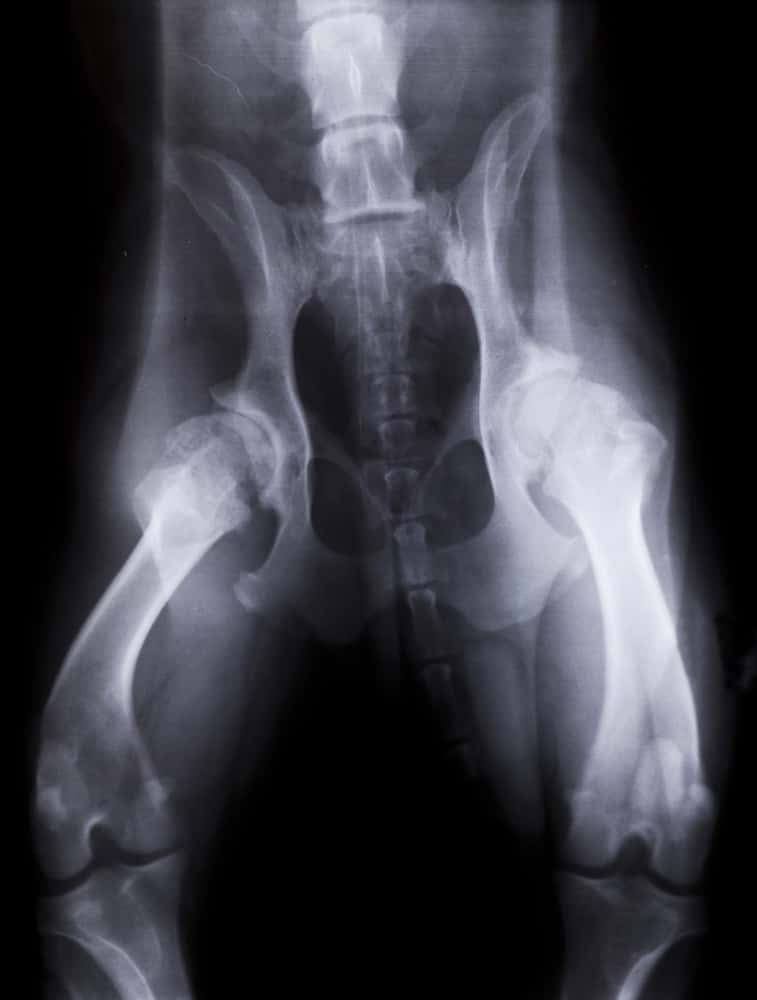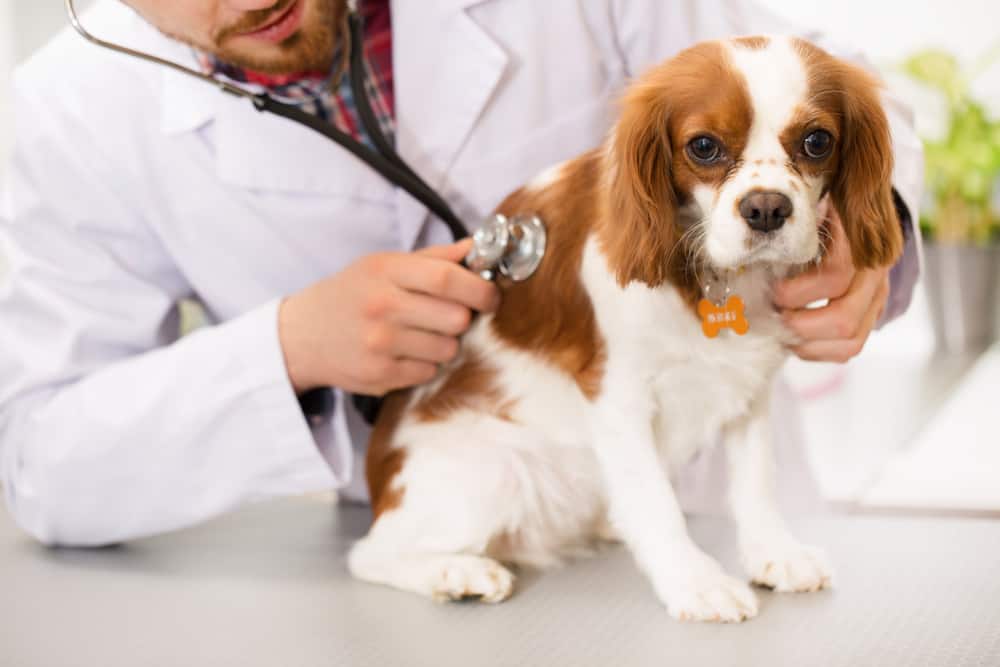So you want a Cavalier King Charles Spaniel, as they are fantastic pets. They are kind and considerate of your feelings and are among the most beautiful dogs with such pretty faces. But you’ve heard they can be quite ill and have wondered, do Cavalier King Charles Spaniels often get sick?
Mitral Valve Disease (MVD) is the primary health concern for Cavalier King Charles Spaniels, a heart condition they are much more likely to suffer from than other dog breeds. They are 20 times more likely to develop this disease. Other common health problems include Syringomyelia, Obesity, Hip Dysplasia, and various eye concerns.
Although Cavalier King Charles Spaniels are pre-disposed to many disorders, this automatically assumes they get sick more than other dogs. Some Cavaliers will have more ailments than others, but like humans, you will be prone to illness more often if you live an unhealthy lifestyle.
Bad lifestyle aside, what are these disorders that Cavaliers can get, and are there any telltale signs when selecting our new four-legged friend? Read on for some of the more well-known disorders among Cavaliers and how to spot them before it’s too late.
Mitral Valve Disease and Heart Murmurs
What is a Heart Murmur?
A heart murmur is often defined as an extra or unusual-sounding heartbeat. Veterinarians will always check your dogs’ heartbeat whenever you visit them, with a stethoscope. They explain a heart murmur as a strange whooshing or swishing sound different from a regular heartbeat.
There are different grades of a heart murmur, starting from 1 being the lowest and going all the way up to 6, which is the worst.
So what is the average lifespan of a Cavalier King Charles Spaniel with a heart murmur? This is a tricky one to answer, as it depends on a couple of factors;
- Lifestyle – Are they active or sedentary?
- An active Cavalier is fitter than a sedentary one and should have a stronger heart.
- Weight – Could your Cavalier do with losing a few pounds?
- Excessive weight can strain the heart, which will not help a heart murmur.
Our Cavvy, Lady, is 11 years old at the time of writing and has a heart murmur. She has had this from quite an early age, and when it was first discovered, she was a grade 1, bordering a grade 2.
As she has aged, the murmur has worsened to a grade 4, but our veterinarian has stated that her heart is still strong and has no cause for alarm. So she still doesn’t need any heart medication as yet.
What is Mitral Valve Disease?
Cavaliers are prone to a condition known as Mitral Valve Disease or MVD. In brief, the heart’s mitral valve deteriorates, leading to heart murmurs, heart failure, and other complications.
The presence of a heart murmur is the first stage of MVD and can worsen over time and as your Cavvy gets older. As with humans, Cavaliers’ bodies change with age and are more prone to health issues.
A symptom of an early-onset heart disorder is the refusal to exercise. If your Cavvy refuses to go for a walk, seek medical assistance from your vet as soon as possible.
Early intervention can help manage this issue, and medication can be administered in serious cases, so regular checkups with your veterinarian are essential.

Syringomyelia
Syringomyelia (SM) is another common health concern in Cavalier King Charles Spaniels. It’s a neurological disorder where fluid-filled cavities develop within the dog’s spinal cord.
It is often paired with another condition called Chiari-like Malformation (CM), where the skull is too small for the brain of your Cavalier. As a result, the spinal cord is squeezed where it meets the brain stem, which in turn causes Syringomyelia.
Symptoms may include pain, difficulty walking, and even paralysis. Some Cavaliers may suffer phantom scratching when certain body parts are touched, such as the chest, the top of the head, and the back of the neck. This is why most Cavaliers don’t like to be petted on their heads.
Early diagnosis and treatment can help minimize the impact of this condition.
Eye Disorders
Eye disorders, such as Keratoconjunctivitis Sicca (Dry Eyes), cataracts, cherry eye, and other eye concerns, are common in this breed. Symptoms may include redness, eye discharge, and discomfort. Regular eye exams and proper eye care can help detect and manage eye-related health concerns in your Cavalier.
Below is a picture of our Cavvy; her name is Lady, and she has the onset of cataracts. This is due to her having diabetes, but her eyesight is still very sharp even though you can see a small milky film over the pupils of her eyes.

Awareness of these health issues can help Cavalier King Charles Spaniel owners take proactive steps to ensure the well-being of their furry companions. Regular veterinary checkups, a healthy diet, and exercise, are crucial in maintaining your dog’s overall health and addressing any concerns early on.
Hip Dysplasia
Cavalier King Charles Spaniels also suffer from back leg problems and are prone to Hip Dysplasia, a genetic disorder affecting the hip joint. This condition can cause discomfort, mobility issues, and arthritis.
When Cavaliers are affected by this condition, it usually starts at an early age but isn’t noticeable until later in life. The ball joint rubs inside the socket of the hips, causing it to be misshapen and pop out of the joint.
This is when the problems start, as the tendon that holds the ball in the socket starts to slacken off, causing it to pop out more often and, therefore, causing a vicious cycle.
Regular moderate exercise and maintaining a healthy weight are advised to try and prevent hip dysplasia in Cavaliers. Exercise strengthens the tendons, and a healthy weight prevents undue joint stress.

Preventative Measures for Health Problems
Prevention is better than cure, so reducing the risk of health problems in Cavalier King Charles Spaniels involves several key practices. Below we cover the importance of regular veterinary check-ups, a healthy diet, moderate exercise, and weight control.
Regular Veterinary Check-Ups
One of the most important areas in maintaining your Cavalier’s health is scheduling regular visits to the veterinarian. Although you know your Cavvy better than anyone else, veterinarians have the medical knowledge and expert equipment to detect things you can’t see.
These check-ups allow for early detection and treatment of potential health issues, such as mitral valve disease and syringomyelia. Having at least annual check-ups for your dog is recommended, but your vet may recommend more frequent visits depending on your pet’s specific needs.
Maintaining a Healthy Diet
A healthy diet plays a significant role in preventing health problems in Cavalier King Charles Spaniels. High-quality, protein-rich dog foods designed for small dog breeds will provide the essential nutrients to maintain a healthy immune system, strong bones, and a shiny coat.
Additionally, avoid overfeeding your Cavvy and be cautious with treats, as obesity can contribute to various health issues. Even fruits and vegetables can contain natural sugars that will give your Cavalier empty calories that may increase their waistline.
Proper Exercise and Weight Control
Alongside a healthy diet, regular exercise is crucial for Cavalier King Charles Spaniels to keep their weight in check and support overall health. Cavaliers enjoy daily walks and interactive playtime, which can help prevent diseases linked to obesity, such as patella luxation and eye conditions.
Remember that Cavaliers with heart conditions should have short moderate exercise daily. Hence, it’s essential to consult your veterinarian for specific exercise recommendations for your Cavalier, considering its age, weight, and health conditions.
Importance of Responsible Breeding

Responsible breeding practices are essential in promoting better health for the breed. There are specific steps to finding a reputable breeder and ensuring they perform genetic testing and health certificates to ensure you have a healthy Cavalier.
Choosing a Reputable Breeder
Selecting a responsible breeder is crucial in ensuring your future pet has the best start. Reputable breeders will always prioritize the breed’s health and adhere to responsible breeding standards. When looking for a Cavalier King Charles Spaniel, choose a breeder who:
- Participates in breed-related activities or clubs
- Provides a clean and healthy environment for their dogs
- Has extensive knowledge of the breed’s health issues
- Offers guidance and support for the life of the pet
Choosing a reputable breeder can significantly reduce the risk of genetic health problems and ensure you are getting a healthy and happy companion, and you will also be helping to prevent puppy farmers from profiting from their cruel practices.
Genetic Testing
Preventing hereditary health issues in Cavalier King Charles Spaniels is probably the easiest way to stop these disorders in future Cavalier litters, so the practice of genetic testing is vital. Responsible breeders will test their breeding dogs for known health issues before mating, including:
- Mitral valve disease (MVD)
- Syringomyelia (SM)
- Hereditary eye diseases
These tests will help to ensure that potential health problems are not passed down to future generations of cavaliers, increasing the likelihood of healthier offspring.
Health Certificates
Health certificates prove that a Cavalier King Charles Spaniel has been examined and cleared by a licensed veterinarian for specific health issues. It is important to obtain health certificates for both the puppy and its parents, as this demonstrates the breeder’s commitment to the well-being of their dogs.
These documents will also give pet owners peace of mind, knowing they have taken necessary precautions to ensure their furry friend’s health.
Things to Note
Cavalier King Charles Spaniels may be more susceptible to certain health issues than other breeds. Still, potential owners must know the possible health issues to take the necessary precautions.
Regular veterinary check-ups, proper hygiene, and a balanced diet can help maintain the dog’s health. Always consult a veterinarian to address health concerns and ensure your Cavalier King Charles Spaniel receives optimal care now and for the rest of their life.


3 thoughts on “Do Cavalier King Charles Spaniels Often Get Sick: The Truth”
Comments are closed.